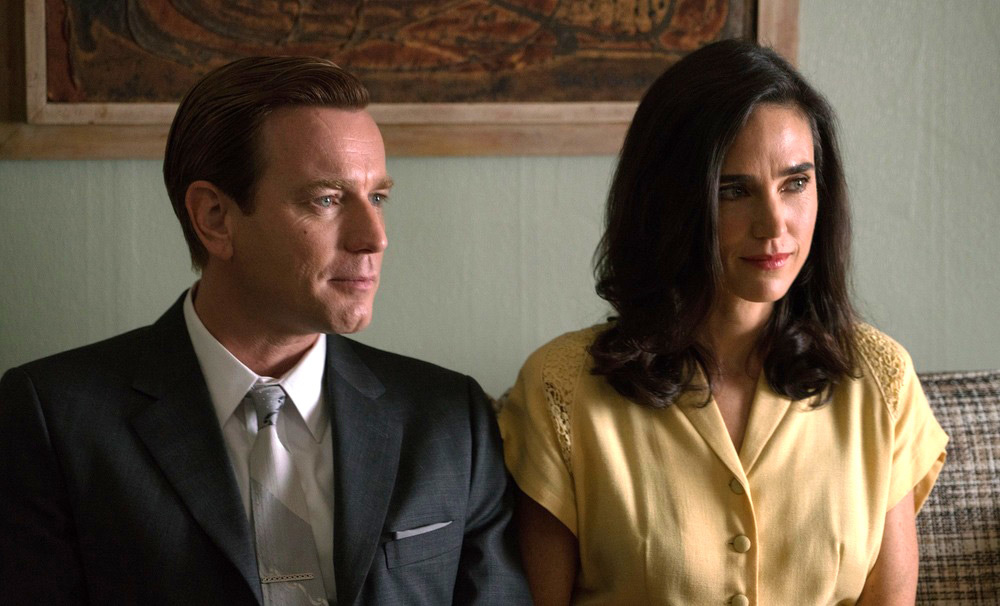This film’s sole redeeming quality is the story. It’s an engaging one for anyone remotely interested in recent American history. In his novel, Roth explored the 1960s anti-war protest movements and how they impacted real people. Seymour “Swede” Levov (Ewan McGregor), a former high school football all-star, and his former beauty queen wife Dawn (Jennifer Connelly) raise a stubborn and headstrong daughter named Merry (Dakota Fanning). Her spirited attitude lends itself to the anti-war mood permeating through the American youth at the time, leading her to criminal behavior and a life on the run. Though I have not yet read the book (intentional avoidance in order to remain objective), there was clearly a strong foundational narrative that the screenwriter worked off. Plus, it won a Pulitzer Prize so I have no doubt that it was a great literary work. Throughout the movie, I was able to make out the skeleton of Roth’s intended plotline and themes. The writing was halfway decent (though it probably didn’t fully do Roth’s writing justice), and thank God for that.
Right away we are introduced to a narrator named Nathan Zuckerman, played by David Straithairn, who is basically irrelevant to the entire story. He’s the friend of the brother of Swede, or something equally convoluted. His purpose is quite unclear until we are introduced to the Levov family. Each of the three Levovs is incredibly unlikeable to the point that I could not have cared less what happened to any of them. Zuckerman, though his appearances are limited to the very beginning and the very end, is meant to be a proxy for the audience. We, alongside Zuckerman, are hearing the story. He, not the Levovs, is the one we are bound to relate to. This device is questionable and often alienates me as a viewer. I detested the use of a similar method in the 2013 Great Gatsby, even though the narrator doubled as the protagonist. Some tactics can translate easily from page to screen, but this is not one of them.
Aside from that dubious narrative device, there was plenty wrong with American Pastoral cinematically as well. Nearly every aspect of the film felt like it was done by an amateur. The framing of every shot was careless and had no cinematographic value. Despite the cast of seasoned actors, each performance was on par with actors in a mediocre community theatre production. Nothing about the film felt genuine. In fact, it all felt forced and artificial, and despite the constant feel of exaggeration it still fell short of its dramatic intentions. Though McGregor is technically a directing amateur, I refuse to give him a pass. Someone who has been in the film industry for over twenty years should have some idea of what a good movie looks like.
I am absolutely puzzled as to how a movie that had so much going for it was able to turn out so poorly. This is not the type of movie you expect to be bad. It is not a B-movie, Jason Statham action flick. It is a historical fiction drama made by people who I thought knew what they were doing. It is frustrating to see so much wasted potential. If you had any interest in seeing this film, or even if you didn’t, I advise you to stay away at all costs. Take the $12 you would spend on a movie ticket and spend it on the book instead.
Grade: D+

 RSS Feed
RSS Feed
